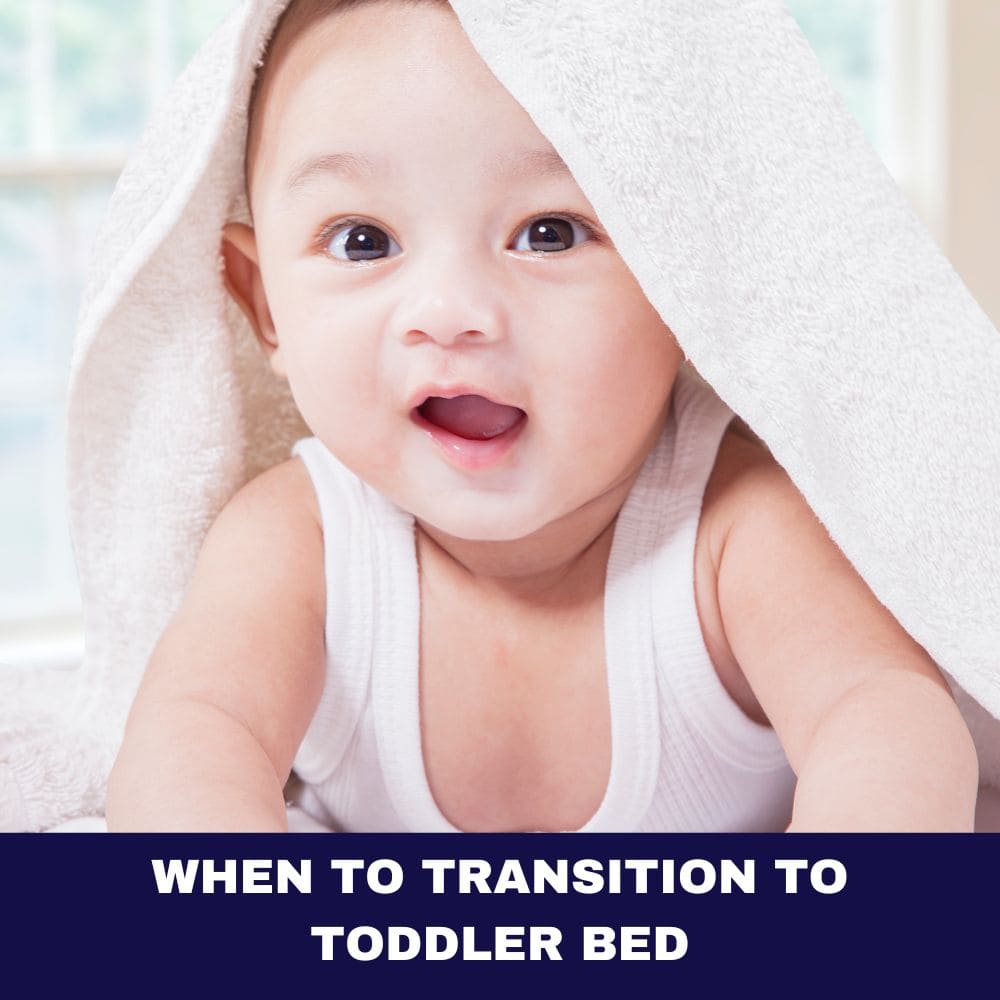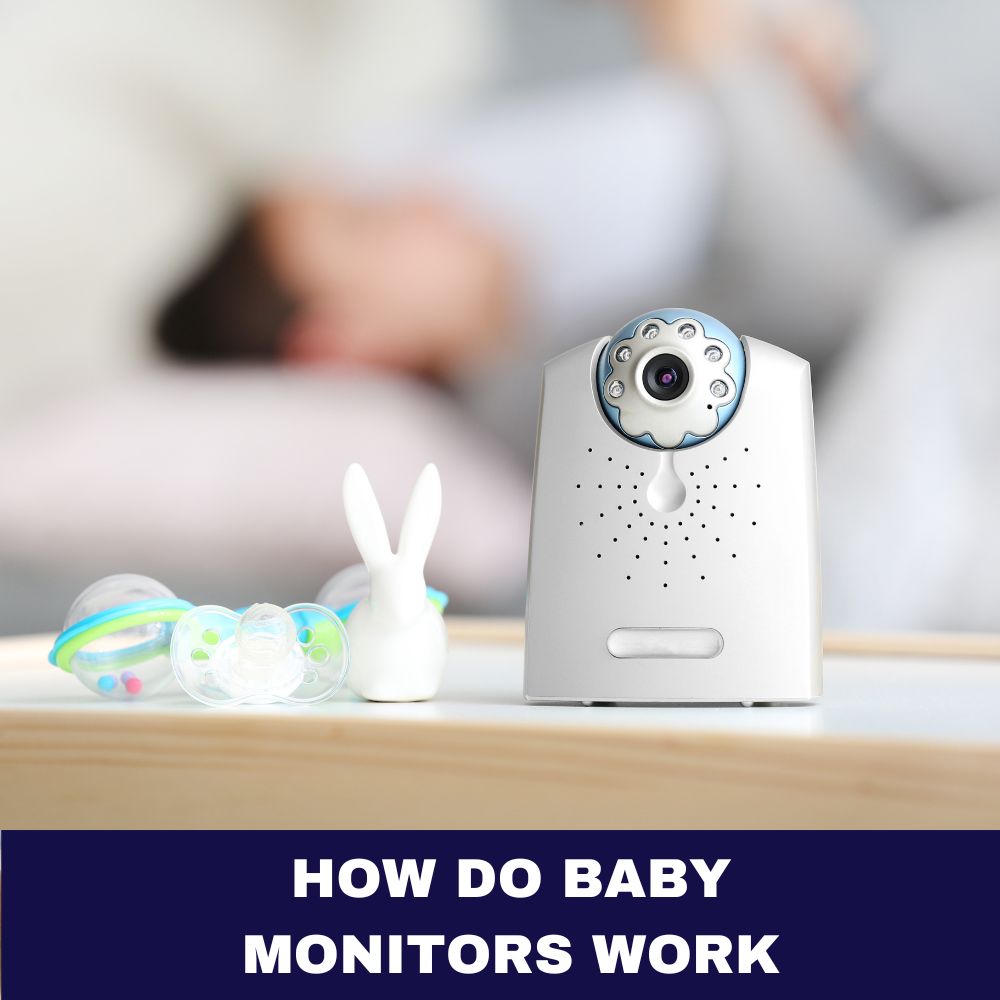Sleep, the most basic human need, becomes an enigmatic battleground for parents during the notorious 15-month sleep regression. As the name implies, this developmental phase can feel like a regression in your little one’s sleep habits, leaving you exhausted and perplexed. But fear not, fellow warriors! We’ve decoded this bedtime battle and are here to equip you with strategies to conquer it like a pro.

Understanding the 15 Month Sleep Regression
Imagine your baby finally sleeping through the night, and then, BAM! The 15-month sleep regression hits, disrupting your hard-earned slumber. During this phase, your once peaceful sleeper may start waking frequently, struggling to fall asleep, or even refusing naps. It’s like they’ve hit the reset button on all your sleep training efforts.
Real Parent Stories and Experiences
Hearing from other parents who have been through the trenches of the 15-month sleep regression can be both reassuring and insightful. Here are a few real-life experiences that may resonate with you:
Amanda, a first-time mom, shares, “The 15-month sleep regression hit us like a ton of bricks. Our daughter, who had been sleeping through the night since she was 6 months old, suddenly started waking up every 1-2 hours. We were exhausted, but what really helped was sticking to her bedtime routine religiously, even when she protested. It gave her a sense of security and familiarity.”
For Katie, a mom of two, the regression brought back memories of her firstborn’s struggles. “With my second child, I knew what to expect, but it didn’t make it any easier. What worked for us was using a sleep sack and white noise machine to create a consistent sleep environment, even when we traveled. It helped minimize disruptions.”
Sarah, a single mom, found the separation anxiety aspect particularly challenging. “My son went through a phase where he wouldn’t let me leave the room without crying hysterically. I started using a lovey with my scent on it, and it helped him feel more secure when I wasn’t there.”
Reading these real-life experiences can help you feel less alone and provide inspiration for strategies that may work for your family.
Signs Your Child’s Disrupted Sleep is the 15 Month Regression
How do you know if it’s the dreaded 15-month sleep regression? Keep an eye out for these telltale signs:
- Sudden changes in sleep patterns: Your little one who used to sleep like a log is now up every few hours.
- Increased fussiness or clinginess at bedtime: They may become extra clingy and fussy when you try to leave the room.
- Developmental leaps: As your baby reaches new milestones, their brain activity increases, affecting sleep.
- Teething symptoms: Those pesky teeth can cause discomfort and disrupt sleep.
If you notice these signs, brace yourself – the 15-month sleep regression has arrived!
| Sign | Description |
|---|---|
| Sudden changes in sleep patterns | Your once peaceful sleeper starts waking frequently or struggling to fall asleep |
| Increased fussiness or clinginess at bedtime | Your baby becomes extra clingy and fussy when you try to leave the room |
| Developmental leaps | Your baby reaches new milestones, leading to increased brain activity and sleep disruptions |
| Teething symptoms | Discomfort from incoming teeth can cause sleep disturbances |
Different Types of 15 Month Sleep Regression
Not all sleep regressions are created equal. Here are some common patterns you might encounter:
- Difficulty falling asleep at bedtime: Your baby may start protesting bedtime or take forever to drift off.
- Frequent night wakings: Just when you thought you’d achieved the coveted “sleeping through the night” milestone, your little one starts waking up multiple times.
- Early morning wakings: Rise and shine, mama! Your baby may start their day at an ungodly hour, like 4 AM.
- Nap refusals or struggles: Daytime sleep becomes a battlefield as your baby refuses to nap or has a hard time settling down.
Identifying the specific pattern can help you tailor your strategies to tackle it more effectively.
What Causes the 15 Month Sleep Regression?
Understanding the root causes of this sleep disruption can help you navigate it better. Here are some common culprits:
Developmental Milestones At 15 months, your baby is reaching exciting new milestones, like walking, talking, and gaining independence. With all this newfound exploration and brain development, it’s no wonder their sleep gets disrupted.
Separation Anxiety As your baby becomes more aware of their surroundings, they may experience separation anxiety, leading to clinginess and difficulty falling asleep without you nearby.
Teething Those pesky teeth can cause discomfort, pain, and disrupted sleep patterns. The 15-month mark is a prime time for molars to make their grand entrance.
Sleep Schedule Changes Your baby’s sleep needs may be changing, and their current schedule may no longer be meeting those needs. It’s time for an adjustment!
Growth Spurts Rapid growth and development can increase your little one’s appetite and energy needs, leading to disrupted sleep patterns.
Factors Contributing to the 15-Month Sleep Regression In addition to the causes mentioned above, other factors like changes in the sleep environment, increased awareness, and separation anxiety can contribute to the 15-month sleep regression.
Next Step: Identify which of these factors might be affecting your child’s sleep, and address them accordingly.

How Long Does the 15 Month Sleep Regression Last?
Brace yourself, because this regression can last anywhere from a few days to several weeks or even months. Every baby is different, but most parents can expect to ride out this sleep storm for 2-6 weeks. The good news? It’s temporary, and with the right strategies, you can help your little one (and yourself!) get through it.
Ideal Nap Schedule and Relation to Sleep Regression
At 15 months, most babies need around 12-14 hours of sleep in a 24-hour period, including 1-2 naps during the day. However, during a sleep regression, their needs may change, and you may need to adjust their nap schedule accordingly.
Here’s an example of a recommended day schedule for a 15-month-old:
- Wake up: 7 AM
- Morning nap: 9:30 AM – 11 AM
- Afternoon nap: 1:30 PM – 3 PM
- Bedtime: 7:30 PM
| Time | Activity |
|---|---|
| 7:00 AM | Wake up |
| 9:30 AM – 11:00 AM | Morning nap |
| 1:30 PM – 3:00 PM | Afternoon nap |
| 7:30 PM | Bedtime |
Observing your baby’s sleep cues and adjusting their nap times accordingly can help minimize the impact of the regression.
Next Step: Track your baby’s sleep patterns and adjust their nap schedule as needed during the regression.
Strategies for Surviving the 15 Month Sleep Regression
Alright, warriors, it’s time to gear up with some battle-tested strategies to conquer this sleep regression.
Establishing a Calming Bedtime Routine A consistent bedtime routine can work wonders in soothing your baby and signaling that it’s time for sleep. Think warm baths, gentle massages, lullabies, and stories – whatever works to create a relaxing atmosphere.
Next Step: If you don’t have a bedtime routine yet, start one tonight! If you already have one, stick to it religiously during the regression.
Managing Sleep Associations and Sleep Props Sleep associations, like rocking, nursing, or using a pacifier, can become problematic during a regression. While these props may have worked before, they can now reinforce negative sleep habits.
Consider using a lovey or security object that your baby can learn to self-soothe with instead.
Next Step: Slowly phase out any sleep associations that are causing disruptions, and introduce a lovey or security object if you haven’t already.
Creating a Sleep-Friendly Environment Your baby’s sleep environment can either promote or hinder restful sleep. Keep the room cool, dark, and quiet – eliminate any potential sleep disruptors like light, noise, or an uncomfortable temperature.
| Factor | Recommended Setting |
|---|---|
| Temperature | Cool (around 68°F or 20°C) |
| Light | Dark (use blackout curtains or shades) |
| Noise | Quiet (use a white noise machine if needed) |
| Bedding | Comfortable, breathable materials |
| Clutter | Minimal toys or distractions |
Next Step: Evaluate your baby’s sleep space and make any necessary adjustments to create an optimal sleep environment.
Addressing Separation Anxiety During Sleep Regressions Separation anxiety can be a major contributor to sleep disruptions during this phase. If your baby is struggling with being apart from you at bedtime, try these gentle strategies:
- Use a transitional object, like a lovey or a piece of your clothing, to help them feel connected to you.
- Stay consistent with your bedtime routine and approach, even if it’s tough in the moment.
- Offer plenty of reassurance and comfort, but avoid engaging in prolonged interactions that reinforce the separation anxiety.
Next Step: Identify if separation anxiety is playing a role in your child’s sleep struggles, and implement these strategies consistently.
The Role of Nutrition and Diet You may not realize it, but your baby’s diet can also impact their sleep quality. Certain foods, like sugary treats or caffeinated beverages, can disrupt sleep patterns. On the other hand, offering calming, sleep-promoting snacks like warm milk or oatmeal can help promote restful sleep.
Next Step: Evaluate your baby’s diet and make any necessary adjustments to promote better sleep.

Other Tips and Tricks
- Use sleep cues: Recognize your baby’s sleepy cues, like eye rubbing or yawning, and initiate your bedtime routine before they become overtired.
- Encourage self-soothing: If your baby wakes at night, give them a chance to settle themselves back to sleep before intervening.
- Offer comfort and reassurance: During the regression, your baby may need extra cuddles, reassurance, and patience from you.
- Be patient and responsive: This phase can be challenging, but responding to your baby’s needs with patience and consistency is key.
- Adjust sleep schedules as needed: If your baby’s current schedule isn’t working, don’t be afraid to tweak it.
- Provide teething relief: If teething is contributing to the sleep disruption, offer safe teething remedies like cold washcloths or teething rings.
Next Step: Implement these tips consistently and adjust as needed based on your baby’s specific sleep patterns and needs.
Sleep Training During the 15 Month Regression
If you’ve previously sleep-trained your baby, you may be wondering if you should continue or modify your approach during the regression. Here’s what you need to know:
Pros and Cons of Sleep Training Methods Sleep training methods like cry it out or gradual extinction can be effective, but they may not be the best approach during a regression when your baby needs extra comfort and reassurance.
Using Patience and Consistency If you do decide to continue with sleep training during the regression, it’s crucial to remain patient and consistent. This phase can be extra challenging, and inconsistency can undo progress.
Modifying Previous Training Techniques
You may need to modify your previous sleep training approach to better suit your baby’s needs during the regression. For example, if you used cry it out before, you might want to opt for a gentler method like fading or pick up/put down.
When to Take a Break from Training
If sleep training is causing excessive stress for you or your baby, it may be best to take a temporary break and focus on providing extra comfort and support until the regression passes.
Next Step: Assess if your current sleep training approach is working during the regression. If not, consider modifying or taking a break until things stabilize.
The Potential Impact of Sleep Deprivation
While the 15-month sleep regression is a normal developmental phase, the sleep deprivation it can cause can have significant impacts on both you and your child if left unaddressed. Let’s explore some of these potential effects:
Impact on Parents:
- Increased stress and irritability
- Difficulty concentrating and decreased productivity
- Weakened immune system
- Increased risk of accidents and injuries
- Strained relationships with partners or other family members
Impact on Children:
- Crankiness and behavioral issues
- Delayed cognitive and physical development
- The weakened immune system, making them more susceptible to illnesses
- Difficulty regulating emotions and managing frustration
It’s important to prioritize addressing sleep issues during this phase to minimize the negative impacts of sleep deprivation on your family’s well-being.
| Impact on Parents | Impact on Children |
|---|---|
| Increased stress and irritability | Crankiness and behavioral issues |
| Difficulty concentrating and decreased productivity | Delayed cognitive and physical development |
| Weakened immune system | Weakened immune system, more susceptible to illnesses |
| Increased risk of accidents and injuries | Difficulty regulating emotions and managing frustration |
| Strained relationships with partners or family members | – |
Here’s an example from Sarah, a mom who experienced the effects firsthand: “The sleep deprivation from my son’s regression took a real toll on me. I was constantly exhausted, easily overwhelmed, and had a hard time staying patient with him. It even started affecting my work performance. That’s when I knew I needed to seek help from our pediatrician.”
When to Seek Professional Help
While the 15-month sleep regression is common and usually temporary, there are instances when you may want to seek professional help:
- If your baby’s sleep issues do not improve or worsen over time, despite your best efforts
- If your child shows signs of illness or other health issues that could be impacting their sleep
- If you have concerns about your child’s growth and development
Don’t hesitate to consult your pediatrician for professional advice and guidance. They may be able to identify underlying issues or refer you to a sleep consultant for additional support.
Coping with Sleep Deprivation as a Parent
Let’s be real – the 15 month sleep regression can be utterly exhausting for parents. It’s crucial to prioritize self-care during this challenging time:
- Ask for help from your partner, family, or friends when you need a break
- Try to nap when your baby naps, or go to bed early to catch up on sleep
- Practice stress-relieving activities like yoga, meditation, or exercise
- Fuel your body with nutritious foods and stay hydrated
- Be kind to yourself and manage your expectations – this phase won’t last forever
Next Step: Identify self-care strategies that work for you and make them a priority during the regression.
Survival Tips for Working Parents
Balancing work and a sleep-deprived baby can feel like an impossible juggling act. Here are some tips to help you survive:
- Get your partner or family members involved in the bedtime routine and nighttime duties
- Have a plan in place for handling sleep deprivation at work, like catching up on tasks during quieter periods
- Pack your baby’s sleep essentials (lovey, white noise machine, etc.) for optimal sleep while traveling for work
- Consider occasionally hiring a babysitter or enlisting childcare help to give yourself a break
Next Step: Communicate your needs with your partner, family, and employer, and don’t be afraid to ask for support during this challenging phase.
Moving Beyond the 15 Month Sleep Regression
As tough as the 15-month sleep regression can be, it’s important to remember that it’s temporary. Your little one will eventually return to their regular sleep patterns, and you’ll all get through this!
Celebrating Milestones and Looking Ahead While sleep disruptions can be frustrating, try to celebrate the amazing developmental milestones your baby is reaching during this time. Their newfound independence, language skills, and mobility are all incredible achievements worth cherishing.
Next Step: Take a moment to appreciate your baby’s growth and development, and look forward to the next exciting phase of their journey.
Conclusion
The 15-month sleep regression can feel like a never-ending battle, but with the right strategies and mindset, you can conquer it like a true warrior parent. Remember, this phase is temporary, and your baby will eventually return to their regular sleep patterns.
Throughout this journey, prioritize consistency, patience, and responsiveness to your baby’s needs. Establish a calming bedtime routine, create a sleep-friendly environment, and don’t be afraid to seek professional help if needed.
Most importantly, take care of yourself. The sleep deprivation can be overwhelming, but by practicing self-care and enlisting support, you can weather this storm and emerge victorious.
Parenthood is filled with challenges, but also incredible moments of joy and growth. Embrace this phase as part of your child’s development, and know that better sleep is just around the corner. You’ve got this, warrior parent – keep fighting the good fight!
Preparing for Future Sleep Regressions
While the 15-month sleep regression is a significant milestone, it’s important to note that sleep regressions can occur at various stages of your child’s development. Being prepared and having a plan in place can help you navigate future regressions with more ease.
Here are some tips for preparing for potential sleep regressions down the road:
- Stay Consistent: Maintain a consistent bedtime routine and sleep environment, even during periods of smooth sailing. This will provide a sense of familiarity and security for your child when disruptions occur.
- Be Flexible: While consistency is important, be prepared to adjust schedules and routines as your child’s needs change. What worked at 15 months may not work at 2 years old.
- Build a Support System: Identify trusted friends, family members, or babysitters who can provide occasional respite when you need a break during particularly challenging sleep phases.
- Practice Self-Care: Continue prioritizing self-care strategies like getting enough rest, eating well, and finding ways to manage stress. A well-rested and healthy parent is better equipped to handle sleep disruptions.
- Trust Your Instincts: As a parent, you know your child best. Don’t be afraid to experiment with different strategies or seek professional help if something doesn’t feel right.
By being proactive and prepared, you’ll be better equipped to tackle future sleep regressions with confidence and resilience.
Remember, while sleep regressions can be challenging, they are a normal part of your child’s development. With patience, consistency, and the right strategies, you and your little one will emerge victorious, ready to take on the next phase of growth and adventure.
FAQ – 15 Month Sleep Regression
Why does the 15 month sleep regression happen?
The 15 month sleep regression is caused by a perfect storm of developmental factors. Around this age, babies are reaching major milestones like walking, talking, and asserting their independence. Their brains are rapidly developing, and they may experience separation anxiety, teething discomfort, and changes in their sleep needs – all of which can disrupt their sleep patterns. It’s simply a normal, albeit challenging, phase of growth.
How long does the 15 month sleep regression typically last?
The duration can vary greatly, but most parents can expect the regression to last anywhere from a few days to several weeks or even a couple of months. Every baby is different, but many families report the disruptions lasting for around 2-6 weeks before their little one’s sleep patterns return to normal. The key is being consistent with your strategies and riding it out.
What strategies can help during the 15 month sleep regression?
Some effective strategies include maintaining a consistent bedtime routine, creating an optimal sleep environment, using a lovey or transitional object, gently addressing separation anxiety, adjusting nap and sleep schedules as needed, and practicing patience and responsiveness. It’s also important to take care of yourself by finding ways to cope with sleep deprivation.
Is it okay to sleep train during the 15 month regression?
Sleep training during this phase can be challenging, as your baby may need extra comfort and reassurance. If you decide to continue sleep training, be prepared to modify your approach and remain extremely consistent. It’s generally recommended to either take a break from sleep training until the regression passes or opt for gentler methods like fading or pick up/put down.
When should I seek professional help for sleep issues?
If your baby’s sleep problems do not improve or worsen over time, or if you notice signs of illness, developmental delays, or other concerning issues, it’s a good idea to consult your pediatrician. They can help identify underlying causes and provide guidance, or refer you to a sleep consultant for more specialized support.












